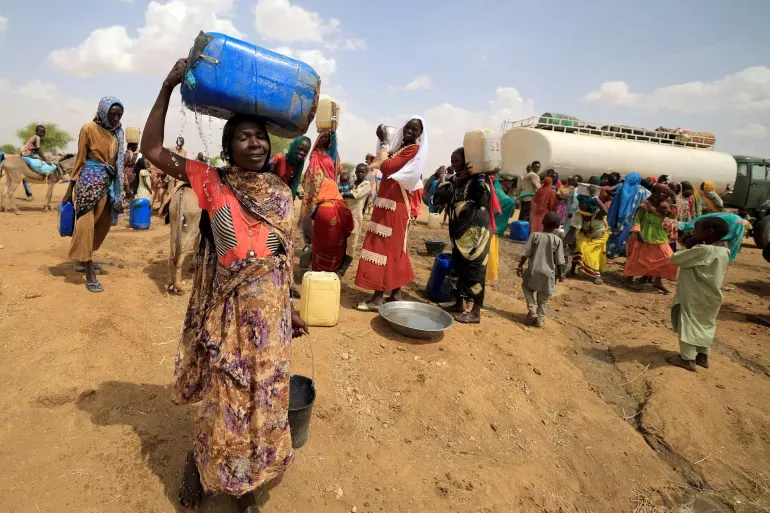The governor of Darfur has called for an international investigation into the violence against people in the region, which has seen some of the worst fighting in Sudan's ongoing war. Mini Arko Minawi on Tuesday urged the UN Security Council to have the International Criminal Court (ICC) investigate the "crimes and murders" committed in the western region in the past two months. The war in Sudan began in mid-April when two warlords, army chief Abdel Fattah al-Burhan and commander of the Rapid Support Forces (RSF) Mohamed Hamdan "Hemedti" Dagalo, began fighting for control of the country. The conflict, which has led to months of conflict between political leaders, has killed more than 3,000 people and injured more than 6,000, according to Health Minister Haitham Mohammed Ibrahim. The UN says more than 2.2 million people have been forced to flee their homes to safety inside Sudan, while at least 500,000 have fled to other countries. The war started in the capital Khartoum, but quickly spread to other parts of Africa, including Darfur. Violence in Darfur is increasingly ethnic, according to local activists, observers and UN officials.

The non-Arab Masalit tribe, which was the target of ethnic violence two decades ago that killed more than 300,000 people, is believed to be being killed by RSF forces and allied Arab forces. The UN envoy to Sudan, Volker Perthes, warned earlier this month that attacks by the RSF and allied Arab forces could amount to crimes against humanity. Minawi, the Governor of Darfur, said that "extreme force" is being used against the inhabitants of many areas of the region, especially el-Geneina, the capital of West Darfur, where the local news - which cannot be confirmed due to communication - said again. More than 5,000 people are believed to have been killed. "What is happening in Darfur now is nothing less than what happened in 2003," he said in a video posted on his social media on Monday, referring to the previous war. which attracted international attention and eventually the African Union and the United Nations. message to continue page. Minawi spoke of the killing of villagers, rape of women, and looting and burning of property, including the "assassination" of politicians and leaders in the region, including the Governor of West Darfur.
Khamis Abakar, the governor of West Darfur, was abducted by RSF forces last week, shortly after they accused the army and their Arab militia of genocide. It was found within a few hours. The killing seems to continue as Al Sadiq Muhammad Ahmed, the commissioner of the Sudanese Humanitarian Aid Commission (HAC) was killed in el-Geneina. Amnesty International said on Monday it was horrified by reports of ethnic killings, sexual violence, burning of houses and the extermination of non-Arab people living in West Darfur by the RSF and members, and said that civilians are in grave danger. . . On the same day, Médecins Sans Frontières (Médecins Sans Frontières, or MSF) called on military personnel in el-Geneina and around el-Geneina to protect civilians and give them a way to escape from the area, shows that thousands of people have fled to neighboring Chad. . Saudi Arabia and the United States, which are proxies between the commanders, established another temporary ceasefire last week that began early Sunday morning and is expected to end early Wednesday morning. But many civil society groups in Sudan say that the RSF and its allied forces are continuing their violence in Darfur in violation of the ceasefire. Meanwhile, the UN said on Monday that international donors have pledged nearly $1.5 billion in aid for the humanitarian crisis in Sudan, which is less than the $2.57 billion the program requires.




